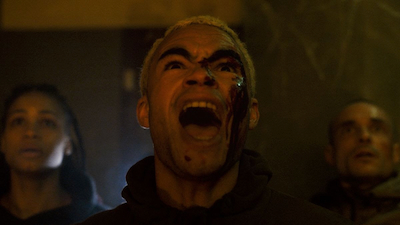- Details
-
Category: Communauté - Community
-
Published: Saturday, 27 April 2024 19:04
-
Written by Meres J. Weche
Rocheny Alexandre est passionné par le travail social et la défense de la santé mentale. Dans cette interview, il partage son remarquable parcours et son travail impactant au sein des communautés racialisées de Toronto.
Rocheny, né et élevé en Haïti, apporte avec lui un riche patrimoine culturel et une profonde compréhension de l'adaptation à de nouveaux environnements. Il nous a rejoints au Canada en tant qu'adolescent, faisant face à la tâche ardue de s'intégrer au tissu canadien tout en se frayant un chemin pour son avenir. Cette période transformatrice a posé les bases de sa vocation dans le travail social et le conseil, le menant à poursuivre des diplômes avancés à l'Université d'Ottawa et, finalement, à une carrière axée sur la santé mentale.
Read more: Un regard profond sur la santé mentale : Rocheny Alexandre partage son expérience unique au sein...
- Details
-
Category: Cinéma - Movies
-
Published: Thursday, 18 April 2024 23:22
-
Written by Gilbert Seah
INFESTED (VERMINES) (Frane 2023) *** 1/2
Directed by Sébastien Vanicek

` Spiders have always freaked humans out as creepy crawlers. One can imagine the horror of a spider killed and dozens of little baby spiders crawling out of the mother’s body. It is no surprise that spider horror movies are almost a genre in itself with films like ARACHNOPHOBIA, EIGHT-LEGGED FREAKS, TARANTULA, EARTH VS. THE SPIDER, most of them not very good. From France, premiering at Cannes last year arrives INFESTED (previous title: VERMIN), arguably the best of the lot, and is as creepy as hell.
Read more: Film Review: Vermines (Infested)






